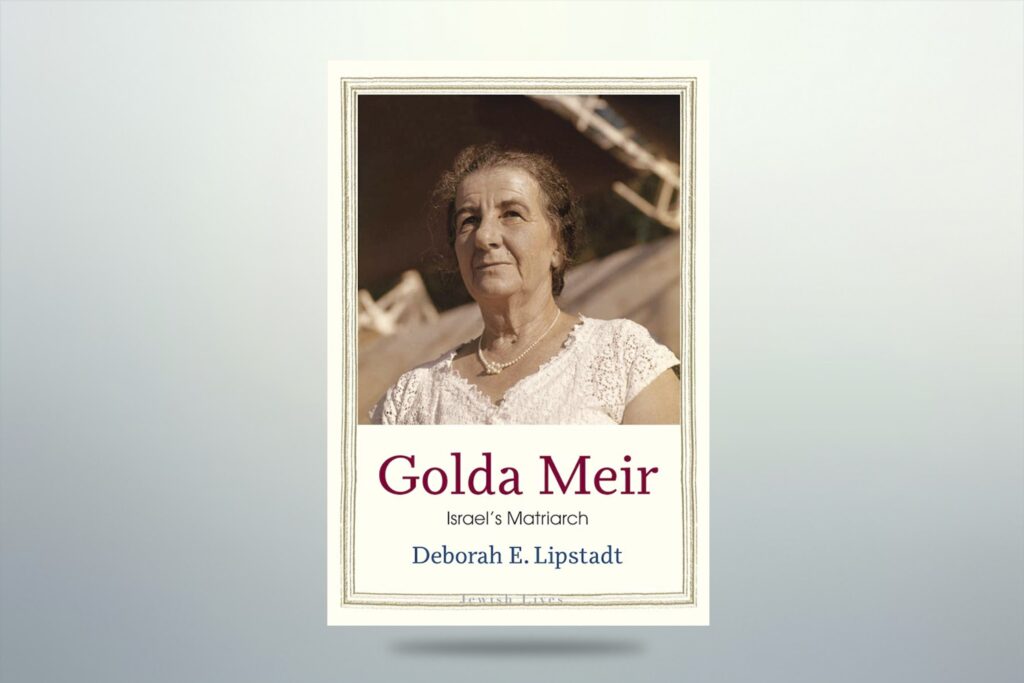Will the legacy of Israel’s Prime Minister Benjamin Netanyahu be defined primarily by his failure to prevent Hamas’ terrorist attack of 7 October 2023, and in conducting one of the most controversial wars in the recent history of the Middle East? To answer the question, it may be worth reflecting on the legacy of another Israeli leader who had to deal with a surprise attack — Golda Meir, who led the country when the 1973 Yom Kippur War was sprung upon it.
Before Hamas’ assault, the Yom Kippur War was Israel’s biggest intelligence and military failure, one that has tarnished the memory of Golda Meir till today. In a recent biography published by Yale University Press, Professor Deborah Lipstadt offers a nuanced portrait of Meir that is worth reading for anyone interested in Israel’s history. While calling her “Israel’s matriarch”, Prof Lipstadt admits from the outset that the mere mention of the former Prime Minister polarises Israelis.
For some, Meir is an icon of Israel’s foundation who, alongside David Ben-Gurion, fought from youth till her death to build the country. While some other leaders, Yitzhak Rabin and Ariel Sharon among them, were lionised for their military prowess, Meir used words to remarkable effect. According to the author, she had a rare ability to compel her audience to not just understand the Zionist cause, but also to embrace it. Acting first as an emissary to the United States, she played a key role in rallying the American Jewish community behind the creation of Israel, and securing the support of US presidents in the 1950s and 1960s. Prof Lipstadt reminds us, for instance, that it was Meir’s meetings with the Kennedy administration were critical in leading the president to talk, for the first time, of a US-Israel “special relationship”.
For others, however, Meir was a flawed leader with poor diplomatic skills. She became Prime Minister in 1969, two years after the 1967 War, and Israel’s conquest of the Gaza Strip and West Bank. During that period, she failed to see the dangers of a prolonged occupation to Israel’s national character. Her blunt statements, such as “there is no such thing as Palestinians”, dismissed their suffering, and enabled the birth and growth of the settler movement in those territories.
This short-sightedness may have been the result of her upbringing. Born and raised during one of the darkest periods of Jewish history, Meir understandably held pessimistic views of humanity, and the ability of the international system to accept her people. She believed peace between Israel and its Arab neighbours was impossible.
Eventually, this led her to show no interest in diplomatic concessions, particularly with Egypt. Several attempts at peace in the early 1970s failed, though, to be fair, both sides deserved some blame. For many Israelis, however, Meir’s intransigence paved the way for the surprise attack on 6 October 1973 by Egyptian and Syria, which initially threatened to overwhelm the country. After stunning losses, the Israelis eventually clawed their way back, although the costs were high on all sides: 2,600 Israelis died, along with 15,000 Egyptians, and 3,500 Syrians. In the aftermath of the conflict, blame fell on most of the intelligence and military leadership, but Meir escaped public condemnation. Nonetheless, she never recovered personally from the debacle, and resigned less than a year later.
Perhaps the most fascinating element in this biography relates to the gender issue. The first – and so far only – Israeli female prime minister, Meir was not just ahead of time in her country, but the whole world: A similar figure like such as Margaret Thatcher only emerged in Britain a decade later. But Meir did not see herself as a feminist icon. She despised such ideas, and rejected both those who dismissed women in power, and those who praised them solely on the basis of their gender. For instance, she reportedly hated the statement attributed to Ben-Gurion that “she was the only man in his government”.
Prof Lipstadt succeeds in painting a portrait of Meir as a complex character: A charismatic, though sometimes ruthless, leader whose qualities and flaws helped shape Israel’s recent history.
Image: Yale University Press





